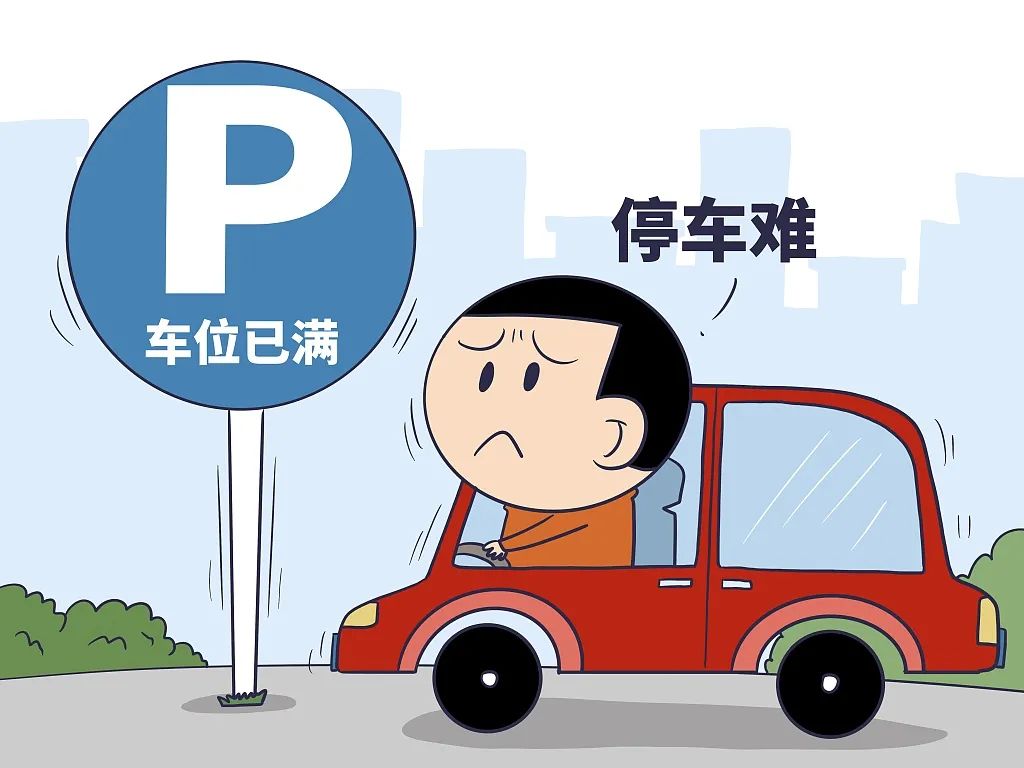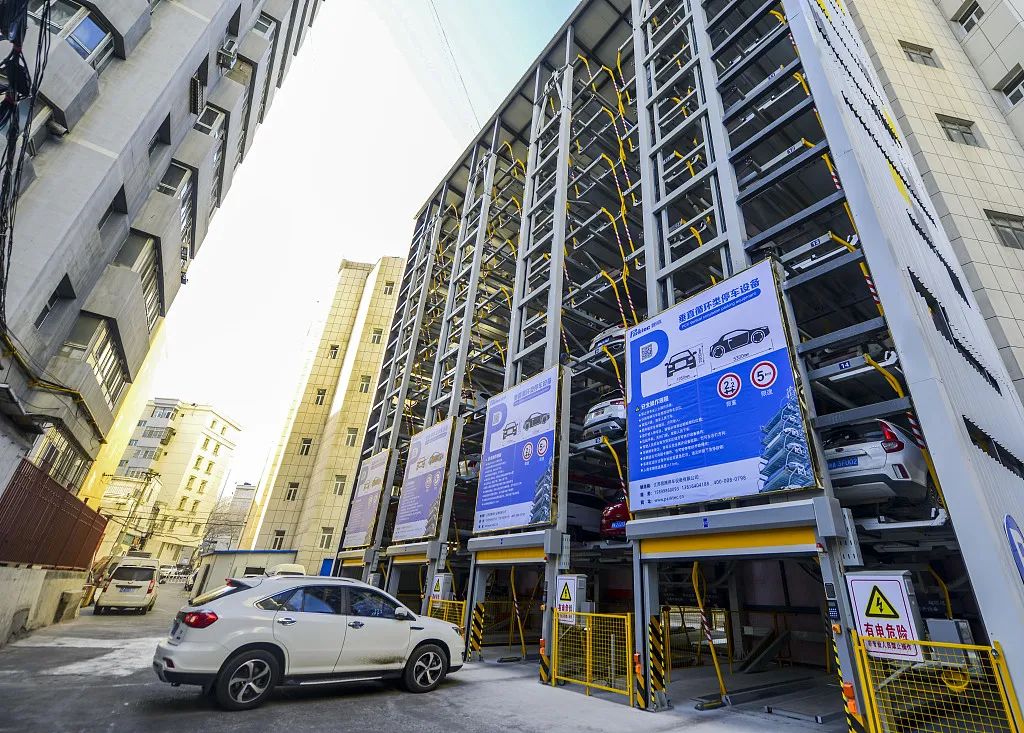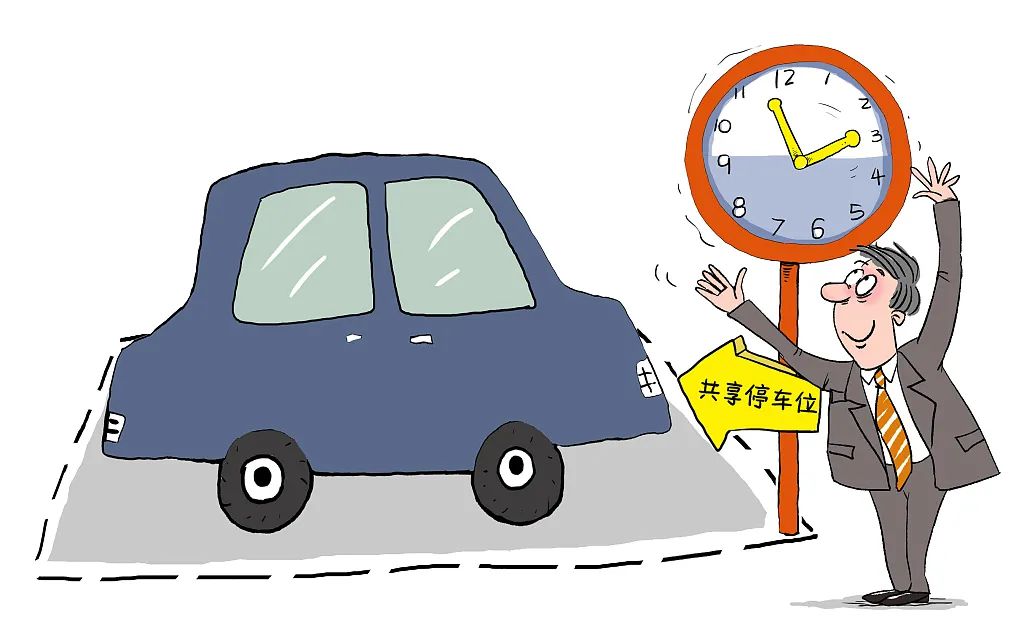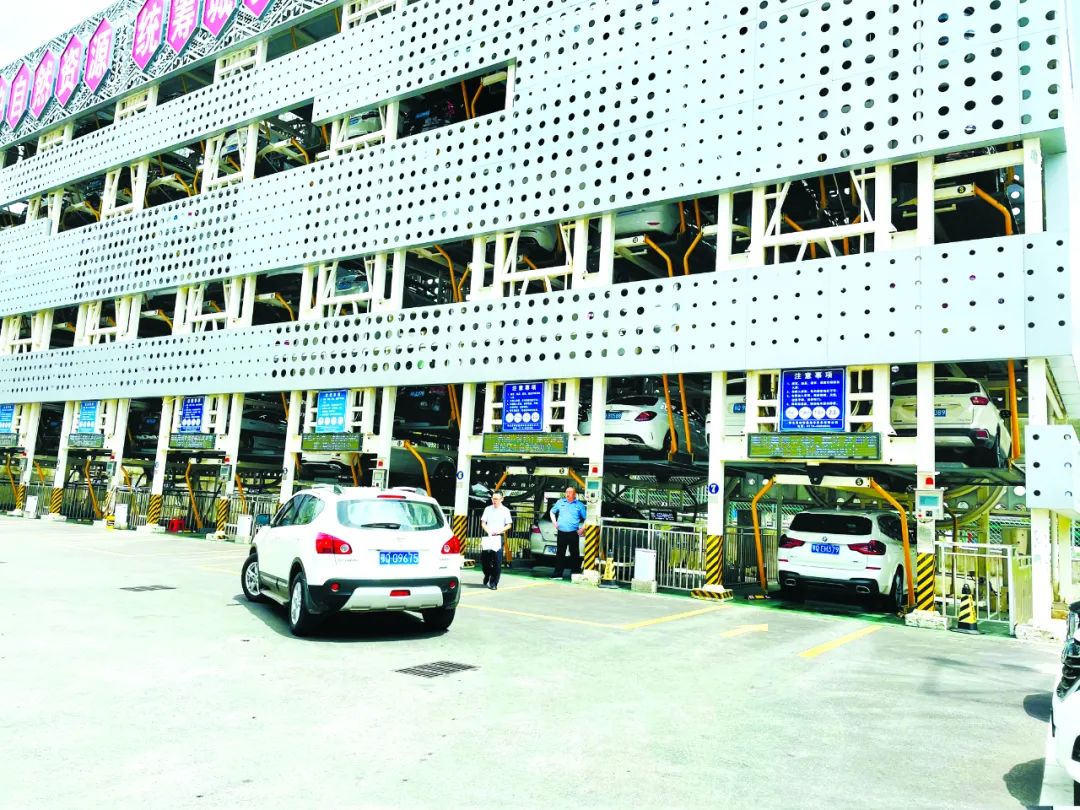How to crack the parking difficulty?
Author:Central Discipline Inspection Time:2022.07.17
Han Yadong Li Yunshu, the website of the Central Commission for Discipline Inspection, reportedly reported that on July 11, the Standing Committee of the Jiangsu Provincial People's Congress held a meeting to solve the problem of the special treatment of parking difficulties. The person in charge of the six departments of the province is faced with the surface of the people's congress to solve the problem of parking difficulties. At present, the number of motor vehicles in Jiangsu Province has reached 24.98 million vehicles, including about 19 million cars, and the parking space gap is about 3 million. Difficult to park has become a common problem facing urban development, and it is also one of the issues of "urgency and sorrow" of the masses.

(Picture source: Vision China)
Although the parking is small, it is a big people's livelihood. What causes difficulties in urban parking? How to solve this "urban disease" right? The reporter interviewed Zhao Zhen, director of the Static Transportation Management Department of the Beijing Municipal Communications Commission, Fang Jiming, Secretary and Director of Hangzhou Rail Public Center, and Wei Chenglin, an associate professor at the School of Politics and International Relations of Tongji University.
Planning has a lot of debts, limited land scarcity facilities, and rapid growth of motor vehicles, which leads to the outstanding contradiction between parking supply and demand
Reporter: Why is it difficult to park? How big is the basic parking space gap in first -tier cities?
Zhao Zhen: With the rapid development of my country's economy and the continuous acceleration of urbanization, people's living standards are increasingly increased, the demand for motor vehicles has continued to rise, and the amount of motor vehicle preservation tends to be saturated. Essence
Taking Beijing as an example, the census of parking resources in 2016 showed that the city's total residential parking space (basic parking space) gap was 1.29 million, of which 850,000 in the central urban area. Although in recent years, through measures such as comprehensive policies, revitalizing stocks, and digging potential construction, residential parking spaces have increased, but the contradiction between supply and demand is still prominent, and problems such as difficulty in parking and ordering still exist.
In terms of supply, the first is to plan a lot of history. Before 1994, there were no indicators of residential parking in Beijing. From 1994 to 2003, the construction indicators of the residential area were only 0.1/households. To 0.3-1.3/households, but at present, the average motor vehicle ownership in our city has reached 0.7/households. The original planning to match parking spaces is far from meeting demand. The second is the scarcity of land and limited facilities. As a large city with a population of over 10 million, Beijing is very scarce. At the same time, the newly added parking facilities in the central urban area are extremely limited (parking facilities mainly come from allocation), and the possibility of large -scale construction of parking facilities is small, and the increase in parking land is very limited.
In terms of demand, the first is the rapid growth of motor vehicles. Since 2000, Beijing's motor vehicle ownership has increased by explosive, and has increased by three times in 10 years. When the purchase restriction policy was implemented in 2011, the amount of motor vehicle ownership has reached 4.98 million. Even if the current purchase restriction policy is implemented, motor vehicle ownership still increases at a rate of 100,000 vehicles per year, and the contradiction between parking supply and demand will further intensify. The second is that the awareness of parking concept needs to be cultivated. Everyone generally believes that their own car principles should be parked at their doorsteps, even low prices and free parking, and consciously maintaining the concept of parking order is not strong.
Reporter: In big cities, which areas are the most prominent phenomenon?
Zhao Zhen: At present, the most prominent performance in Beijing's "difficult parking" is also the old community and the alley. The main manifestations are: low internal parking and providing construction standards, serious lack of parking space supply, and overflowing vehicles; internal (property) parking management is relatively weak, and there are even no parking management communities. The vehicle parking is casual and free of charge, resulting in more foreign vehicles. Difficult to park and the problem of parking chaos is more difficult to relieve.
Wei Chenglin: The spatial layout of the large cities production and life partition makes citizens a "tidal" flow daily. Stores and stopping in the flow of urban population will cause parking demand. Some demand can be solved in the flow, and some have become difficult to digest "blocking and pain points". The more densely the population and time, the scarce the parking space is. For example, schools and vegetable markets are usually difficult to park during certain times, and hospitals, city center attractions, and shopping malls are almost "difficult to find" throughout the day.

The bustling business district of Tianshan District, Urumqi, Xinjiang, a new three -dimensional parking garage behind a large -scale shopping mall has doubled the number of parking in this area. Photo by Liu Xin, a reporter from China News Agency
The key problem behind the difficulty of parking is that the privacy of the parking resources is too strong, the sharing system is not complete, and the refined governance is not in place
Reporter: Why can't parking facilities be used efficiently while the parking facilities are difficult?
Wei Chenglin: The phenomenon of "parking outside the wall, idle parking space inside the wall" has always existed in major cities. The key problem behind the difficulty of parking is that the privacy of the parking resources is too strong, the sharing system is not complete, and the refined governance is not in place. At the current stage, digging potential expansion and space sharing are the feasible path to solve the difficulty of parking.
Digging of potential expansion refers to a micro -transformation of residential communities, under the viaduct, roads and other spaces, and transforms abandoned, idle, and inadequate corners into parking spaces to increase parking space resources. Space sharing refers to the sharing of parking space resources with idle parking spaces in specific areas and specific periods. The parking spaces of enterprises and institutions, business buildings and other departments are usually idle during non -working hours, and parking resources in residential communities are usually idle at work hours. If the use of parking spaces in the two types of space flows up with the flow of population, it can solve a considerable part of parking problems.

(Picture source: Vision China)
Reporter: Who is the difficulty of parking? What role should the government play in it? Wei Chenglin: Difficulty in parking is a comprehensive problem, whether it can be solved, the key depends on the two subjects: the main body of space ownership and the main body of space management. The former mainly includes units, shopping malls, community owners, etc., and the latter mainly include government departments such as traffic management, urban management, housing construction, land and land, as well as property companies responsible for vehicle parking management.
Zhao Zhen: At present, my country's parking market is not fully stimulated. The company's investment construction has a long return period and insufficient power. People have a low willingness to pay for parking and pay for the relationship between parking supply and demand. Essence In this context, the general scale of parking companies, scattered distribution, low standards, insufficient market vitality, low operating efficiency, low service level, and low anti -risk capacity.
At this stage, the government should laid a good foundation for market -oriented development at the policy level and encourage and promote it. It should solve the problem of market -oriented development mechanisms such as ownership and land system, and lay a market -oriented foundation; through compressing "welfare parking" and illegal parking, promote the formation of market -oriented parking demand, leveraging the parking industry; "Internet+" rapid development of the rapid development of "Internet+" It also brings opportunities for the parking industry, the government can promote the aggregation of scattered parking resources information, encourage market entities to optimize the configuration of parking resources through informatization and intelligent means.
Difficulty parking is an important part of urban governance. Based on the joint participation of the whole society and the duties of various departments, a strong coordination mechanism must be established
Reporter: There are many functional departments involved in urban parking management. What problems will this bring and how should they respond?
Wei Chenglin: In some places, there are problems involving more functional departments but less effective supervision in urban parking management. It is mainly reflected in: the lack of top -level design, many places are managed by government documents, and a few places have introduced local regulations for parking management; Wait for multiple departments; there are blind spots in supervision.
Fang Jiming: Difficulty in parking is an important part of urban traffic governance. It involves all aspects of the government, society, individuals and other aspects. It cannot be solved by a single department to fight alone. Promoting through the establishment of a strong coordination mechanism.
Enshi City, Hubei Province, promotes vertical circular three -dimensional parking buildings, expand urban space, and solve the problem of urban parking. The picture shows the three -dimensional parking tower in the Natural Resources and Planning Bureau of Enshi, which can be used for social vehicles. Ganna Photo

Reporter: Under the national conditions with very precious land resources, how to solve the problem of parking difficulties through the reasonable setting, use, and management of parking spaces?
Zhao Zhen: The area required for a car to park is almost equivalent to the per capita residential area of my country's cities and towns, indicating that the parking facilities are quite consumed by land resources and are destined to be scarce resources. In this regard, the first is to strengthen demand research and matching, to allocate resources reasonably, and minimize resource redundancy and waste. The second is to optimize land and approval during the construction of parking facilities. In particular, the cities in my country have more updates and faster, and some parking facilities are temporary. It is even necessary to shorten the process and speed up the construction.
In terms of management, the first is to enforce enforcement in place, cultivate the concept of "parking in place, parking payment, violation of punishment", improve the cost of violations, and promote the formation of market -oriented parking demand; The renovation of the old community, promote the full realization of parking toll management in the residential area, and squeeze the demand for parking welfare outside the road; the third is to give full play to the role of informatization in management and services, strengthen new technologies such as parking and big data, the Internet of Things, 5G, and other new technologies In the field of application fields, while increasing the efficiency of facilities through information means, it provides convenient, fast, accurate and efficient integrated travel services.
Fang Jiming: First, we must pay attention to the scientific and rationality of the plan, and dynamically adjust the planning layout in combination with the actual situation of urban development. The second is to expand parking facilities according to local conditions. Take Hangzhou as an example. The "Hangzhou Motor Vehicle Parking Lot (Library) Construction and Management Measures" clearly clearly clearly uses the contradiction between parking supply and demand. Public spaces such as open venues have set up temporary parking lots. According to statistics, more than 1,500 such parking facilities have been set up in Hangzhou, which alleviate the problem of surrounding parking difficulties to a certain extent. The third is to regulate the management of parking spaces. Hangzhou is organizing the formulation of local standards for parking lot operation management services to standardize local standards. It is hoped that through formulating unified operating management service standards, it provides citizens with a good parking environment and experience. The fourth is to make full use of existing parking resources. Hangzhou has successively launched a series of convenient measures such as "leaving the field and then paying", parking guidance, etc., and strives to use the existing parking resources to make good use of it.
Read the original text ", view the full version content
Edit: Wang Danwen
- END -
The latest masterpiece of the Zhejiang Academy of Agricultural Sciences' "amethyst fragrance" debut!

The figure is slender, the skin is thin, the taste is sweet, the taste is sweet, t...
There is no wife in his wife's cake, but there are really turtles in Guiling cream!

Buy the card first, then place orders, more favorableSummer is here, I guess you m...